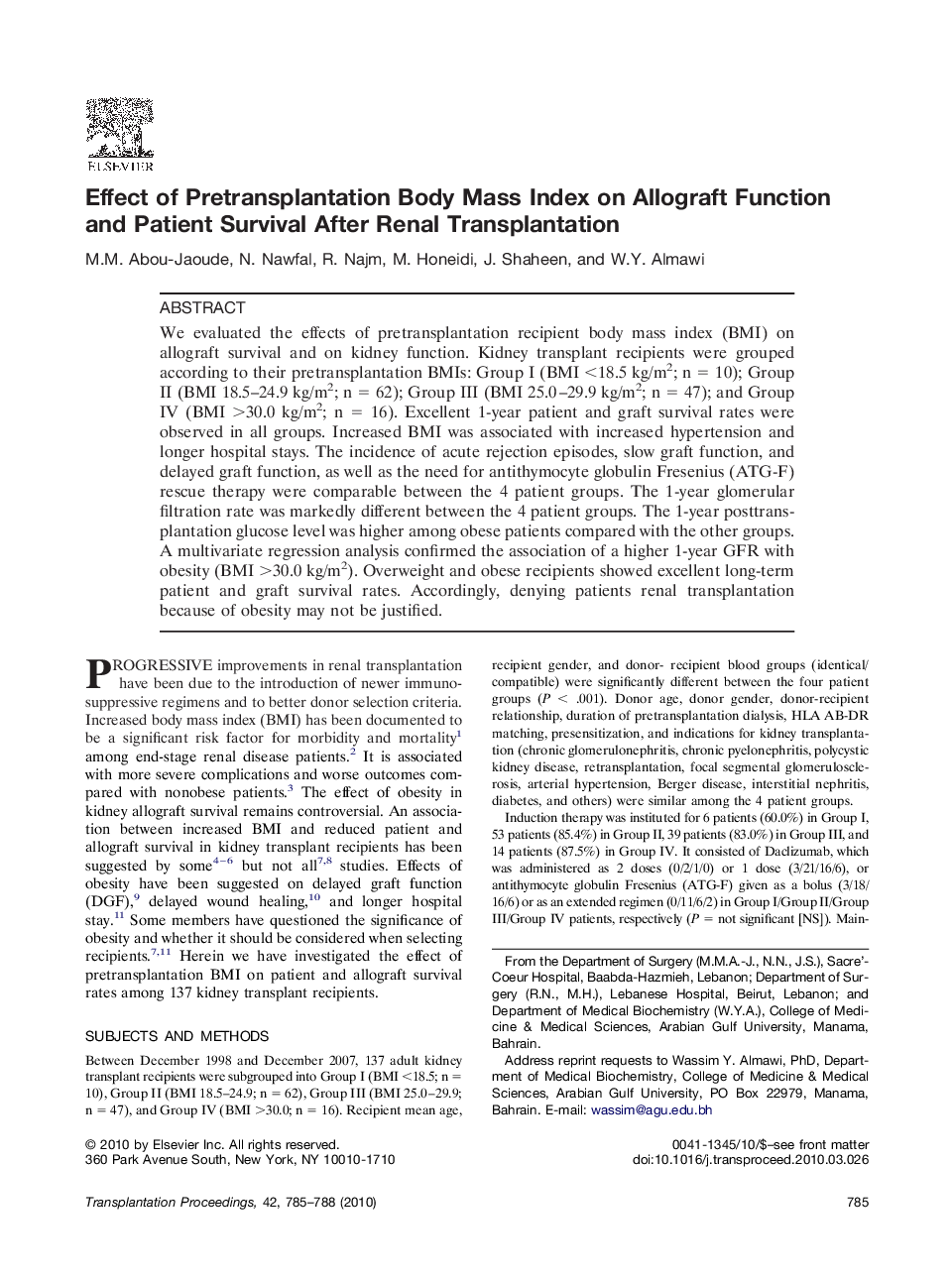| Article ID | Journal | Published Year | Pages | File Type |
|---|---|---|---|---|
| 4258130 | Transplantation Proceedings | 2010 | 4 Pages |
We evaluated the effects of pretransplantation recipient body mass index (BMI) on allograft survival and on kidney function. Kidney transplant recipients were grouped according to their pretransplantation BMIs: Group I (BMI <18.5 kg/m2; n = 10); Group II (BMI 18.5–24.9 kg/m2; n = 62); Group III (BMI 25.0–29.9 kg/m2; n = 47); and Group IV (BMI >30.0 kg/m2; n = 16). Excellent 1-year patient and graft survival rates were observed in all groups. Increased BMI was associated with increased hypertension and longer hospital stays. The incidence of acute rejection episodes, slow graft function, and delayed graft function, as well as the need for antithymocyte globulin Fresenius (ATG-F) rescue therapy were comparable between the 4 patient groups. The 1-year glomerular filtration rate was markedly different between the 4 patient groups. The 1-year posttransplantation glucose level was higher among obese patients compared with the other groups. A multivariate regression analysis confirmed the association of a higher 1-year GFR with obesity (BMI >30.0 kg/m2). Overweight and obese recipients showed excellent long-term patient and graft survival rates. Accordingly, denying patients renal transplantation because of obesity may not be justified.
